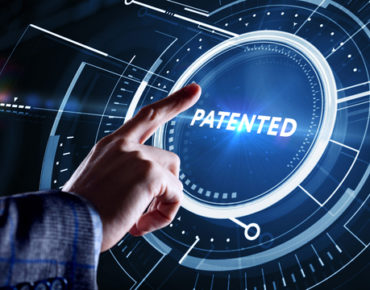Should AI Systems Be Considered As ‘Inventors’ on US Patent Applications?

An artificial intelligence system may technologically be able to “invent” things, but then such a system cannot literally be named as an “inventor” on an official patent application to the U.S. Patent and Trademark Office.
That is the recent decision of a federal district court judge who ruled in a case filed by Stephen L. Thaler, the CEO and president of Imagination Engines, Inc., an AI patent incubator and accelerator in St. Charles, Missouri.
Thaler and his company filed a patent application in July 2019 with the USPTO that listed its AI system, DABUS, as an inventor of two concepts – a "neural flame" device containing a flashing light-emitting element, and a special fractal beverage container created using fractal geometry. DABUS stands for “Device for the Autonomous Bootstrapping of Unified Sentience.”
The USPTO reviewed the patent applications and replied to Thaler in August 2019, asking for a person’s name as the inventor of the products, which the agency said was missing and required.
Thaler appealed that request from the agency, arguing that his AI system was the named inventor and should be permitted to be named on the application. The USPTO denied his assertions in January 2020 and did not accept the applications as submitted.
Thaler then filed a lawsuit in federal court against the agency, alleging that the patent office’s rules are outmoded and need to be updated to meet the changes being brought about by new technologies including AI.
Ryan Abbott, a law professor at the University of Surrey in the United Kingdom who represents Thaler in the case along with an international legal team, told EnterpriseAI in an email exchange that the team will now file an appeal with a higher U.S. court to fight the recent decision from U.S. District Court Judge Leonie Brinkema in Virginia.
“This case was initiated by a group of attorneys active in the area who are working on the case pro bono,” wrote Abbott. “That is because it involves a series of important and unresolved legal issues. Dr. Thaler generously agreed to provide the test case.”
The core of the USPTO’s rules – the contention that AI cannot invent something – is that AI is “increasingly being used in R&D in a way in which you may get inventive output from the AI, but no person who traditionally qualifies as an inventor” under current agency rules.
“The lack of human inventor is the case in these patent applications,” which means that without a named inventor, they cannot get a patent, he continued. “USPTO is taking the position, and took the position in the district court hearing, that AI-generated inventions are unpatentable. In 10 or 20 years, AI-generated inventions may come to represent a substantial amount of innovation generally.”
Inside the Court’s Ruling
In Judge Brinkema’s 18-page decision, she ruled that the “plaintiff’s policy arguments do not override the overwhelming evidence that Congress intended to limit the definition of ‘inventor’ to natural persons.”
At this point, she wrote, and through the history of U.S. patent law so far, an applicant listed on a patent application must be a human being. Since that is the law, that is the basis for her ruling, she wrote.
“As technology evolves, there may come a time when artificial intelligence reaches a level of sophistication such that it might satisfy accepted meanings of inventorship,” wrote Brinkema. “But that time has not yet arrived, and if it does, it will be up to Congress to decide how, if at all, it wants to expand the scope of patent law.”
Abbott wrote in his emails that he and Thaler’s legal team “respectfully disagree with the judgment and plan to appeal it. We believe listing an AI as an inventor is consistent with both the language and purpose of the Patent Act.”
Judge Brinkema’s ruling “would prohibit protection for AI-generated inventions and it diverges from the recent findings of the Federal Court of Australia. This means at present that patent protection is only available for these inventions outside the United States.”
By naming an AI system as an inventor, that is not the same thing as designating such a system as a patent holder, said Abbott.
Two similar cases in Australia and South Africa resulted in rulings in favor of accepting AI systems as inventors, he said. Abbott maintains a website, Artificial Inventor, that follows the course of these cases around the world. The site is “dedicated to seeking IP rights for inventions generated by an AI system without a traditional human inventor,” according to the site. In 2019 he wrote an article describing the ongoing fight that lay ahead for Thaler’s patent application.
A Patent Attorney Weighs In
Anthony M. Verna III, a patent attorney in Rye, New York, told EnterpriseAI that historically, when it comes to patent law that only people, and not things, can be inventors. “The way that our tradition works and the way that the statute is written an inventor under patent law is defined as a person,” he said. “[A patent] could be assigned to a company, a corporation, and most patents are, but the inventor is a person. So, the question then becomes, when you have this situation, how is a judge or a panel of judges going to handle those particular questions?”
These kinds of questions are just starting to be asked in the field of patent law, said Verna.
“This will not be the only case,” he said. “Wherever this case goes, there will be a ruling by an appeals court, and it is going to sit there until another appeals court gives a ruling that is different. And at some point, the U.S. Supreme Court is going to be asked to look at it.”
Several technology analysts said they see the case as an example of the many issues facing AI in society into the future.
Marc Staimer, president of Dragon Slayer Consulting, said the plaintiff’s argument could be challenging. “The problem they are dealing with is attributing rights to a software program, and AI is a software program,” he said. “There is no legal precedent that I am aware of that gives rights to a piece of software, regardless of what it creates. Software is not considered a legal entity. A human individual, corporation, LLC, LLP, trust, non-profit, are all considered legal entities that have some rights. This is well established in the law.”
Any changes to those precedents can only come through the legal system, he said. “Until the legislative bodies or the courts rule that a piece of software has legal rights, and not the owner-manufacturer-developer of that software, then this lawsuit is going nowhere. I sincerely doubt that will happen anytime soon.”
Daniel Newman, principal analyst and founding partner at Futurum Research, agreed.
“This is an extremely interesting case where there is no existing precedent, and it is likely the USPTO is rejecting it based on not wanting to take the step of legitimizing or creating a precedent of making non-human entities into inventors or rightful owners of IP,” said Newman. “I have a feeling that the USPTO will be happy to allow the courts to review this case and make a decision. I personally find it hard to think of a circumstance where machines are legitimately able to hold patents or other IP.”
Shelly DeMotte Kramer, who is also a founding partner and principal analyst with Futurum Research, told EnterpriseAI that she does not like the idea of machines being listed as inventors of things.
“I think about this and then quickly jump to a possible scenario where machines the world over are pumping out patent ideas and applications and the humans processing them cannot keep up,” she said. “More importantly, forget keeping up the business, is this a good thing? I think the court ruled correctly and this would open a Pandora's box that would essentially be a nightmare. It is definitely an issue with which I see us having to contend in the not too distant future.”














